Dr Sadeq Jawad Sulaiman had always focused on leading through knowledge, morality and faith, the three components known early in the human experience as synthetically comprising essential wisdom. It was realized that knowledge divorced from morality could be put to wrong ends, and morality not sustained by faith oftentimes falter. He advocated that we can peruse from the scriptures and philosophical analects of the ancients that they thus deemed the trio of knowledge morality.
Dr Sadeq had worked in several fields, including journalism and diplomacy. From even early on, philosophy had been a staple food for thought. He believed that the essential source of all knowledge is mother nature herself.
“She does not begrudge us her secrets. She does not cheat, mislead, obfuscate or distort; it is as though she truly treats us humans as her offspring yearning to learn even more about their mother and themselves. And she provides well to enable us all to live an enlightened life experience.”
To reveal to us her inner workings, Nature requires us to be empirical as well as rational in our thinking, inductive as well as deductive in our research; and she demands due diligence from us to obtain correct results.
“In our time, our scientists and engineers, moving on with our evolving science and technology, have transformed our world in myriad ways with astounding new insights and innovations. Listening lately on YouTube to the Nobel laureates of recent years discussing their frontier science and the far more sophisticated applications yet to flow from their exponentially expanding research … listening to them I was dazzled by how deep they have penetrated, and how far deeper their posterity may delve in an open-ended pursuit of Knowledge of the natural world’’, he had told the Observer after his sessions online.
He believed that we have come a long way in understanding ourselves better than we ever did, notably in how best to organise and manage our affairs.
Though demoted from that cosmic apex down to mere earthly creatures, our species, nonetheless, carry the potential to rise ever higher in consciousness about the universe we inhabit, and in the capacity to probe ever deeper the universe’s macro and micro dimensions, and possibly any other dimensions as yet unfathomed.
“All that is well and good, for Knowledge is indeed the basic feed that nurtures our intellectual growth and extends our technological reach. Knowledge, however, as our ancestors early on realised, cannot be fully trusted when not coupled with Morality, the second component, after knowledge, in my vision for raising optimal leadership.”
“Knowledge is power’’, so said Francis Bacon, pioneer of the English Renaissance. But Dr Sadeq believed that Bacon was not particularly focused on the crucial role of morality in guiding the power of knowledge to beneficial ends. He simply did not quite see the nexus. Before him, the Greeks had called knowledge ‘Virtue’, and the Muslims had called it ‘Light’, both signifying an amalgam of Knowledge and Morality.
At this point, we come face to face with the next seminal question: Can Morality be sustained at both the personal and societal levels under all circumstances, specifically in the face of disasters and death and disease, and all kinds of evil perpetrated by man against the man under unruly conditions?
Yes, it can. Morality can be sustained under all circumstances if it comes rooted in Faith, otherwise, it may falter in the face of extremely trying conditions, or where greed and lust overpower. Here again, from an era long past, from early Islamic maxims, to be precise, we gather that the idea of Morality can be realized fully only when it is implanted in Faith and actualised in good works. In other words. Morality was early on seen as ensuing from inner righteousness rather than outer piety.
Without Morality steering it to its proper use, Knowledge can be wasted, or worse, wrongfully applied to nefarious ends. After all, in our own contemporary experience, it is Knowledge, misdirected in the absence of moral constraint, that has put us on a slippery slope to possibly catastrophic warfare with weapons of mass destruction, and that also has pushed us to thoughtlessly abuse the very natural environment sustaining us on this planet.
When as a result of moral deficiency, corruption runs wild, much as we try to contain its invidious spread by combative laws, we invariably fall short as long we fail to simultaneously re-instate strong moral disciplines in the public mind. We may succeed, says China’s ancient sage, Confucius, only when leadership sets an example of acting morally, admiring which people then tend to trust and willingly emulate.
Then again, in the ancient wisdom of India, we find DHARMA, the Law of Moral Order, which generates all righteous activity. Since all human speech and action ensue from Knowledge, to ensure the integrity of both speech and action, Knowledge should come guided by Morality at all times, just as Morality to be practicably useful should always be backboned by Knowledge.
“Faith, as such, is the third component of my vision for raising optimal leadership. By Faith, I do not mean formal religion, and certainly not any particular formal religion. By Faith, I mean a highly refined state of mind that under proper moral disciplines can evolve in any person or society, religious or secular, giving rise to a holistic embrace of the common good that indiscriminately commits to the welfare and elevation of humanity at large. Faith essentially rests in confidence in the integrity of Nature and the potential capacity of the human mind to rise intellectually and morally to boundless heights.
In the state of Faith, conflict, mistrust, confusion and such, that chronically stir unruly passions and poison relations among humans, are effectively diminished. Egoistic residues that hamper enlightenment and undermine Morality are likewise much weakened. And toxic thoughts, such as envy, hatred, greed, conceit, vengefulness and malice are altogether extinguished.
Dr Sadeq has indeed succeeded to a great extent in advocating that a leader trained thus in knowledge, morality, and faith, simply does what needs to be done, without the least expectation of reward. The best action is performed with no view of the fruit of action, we read in holy scriptures of various religions.
For him, Knowledge is power, but the power of Knowledge can go to wrong ends, if not constrained by a sense of the moral. And Morality not implanted in Faith may falter and retreat



